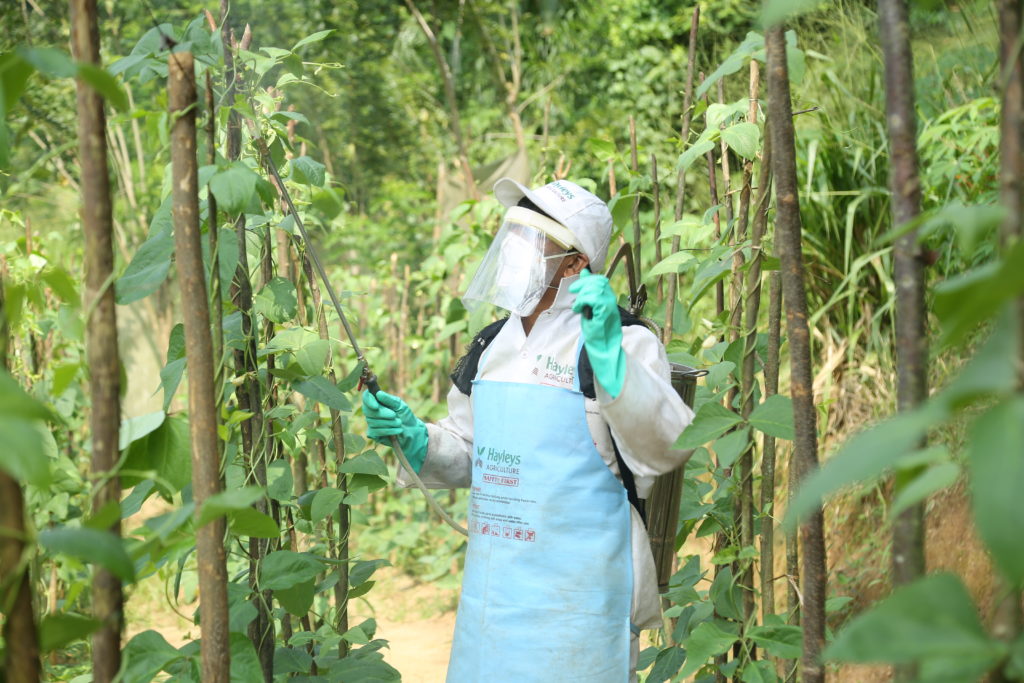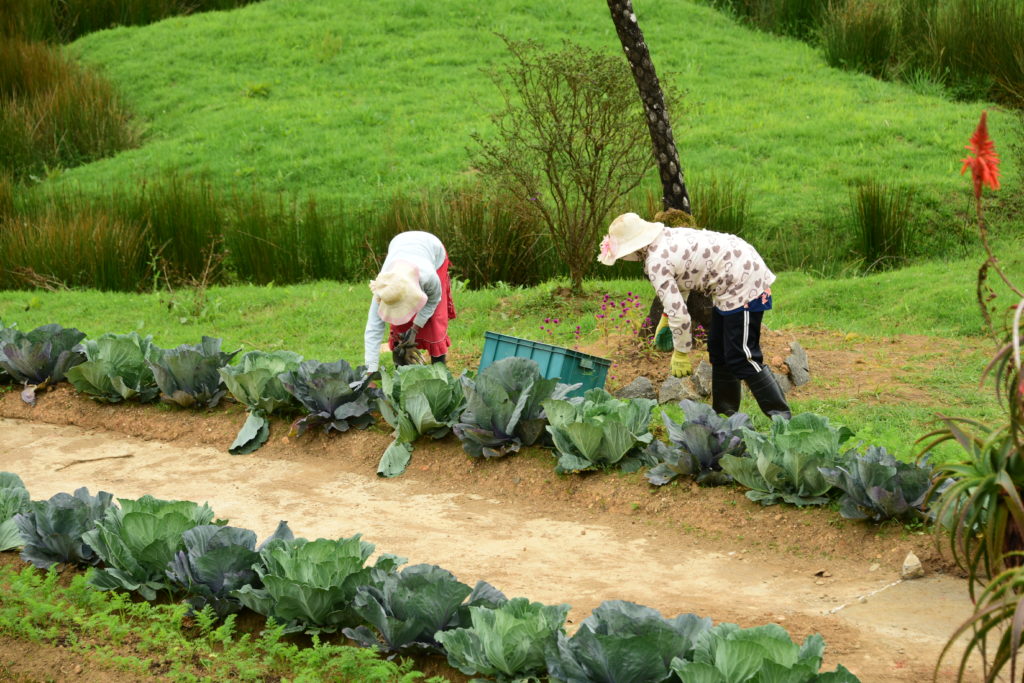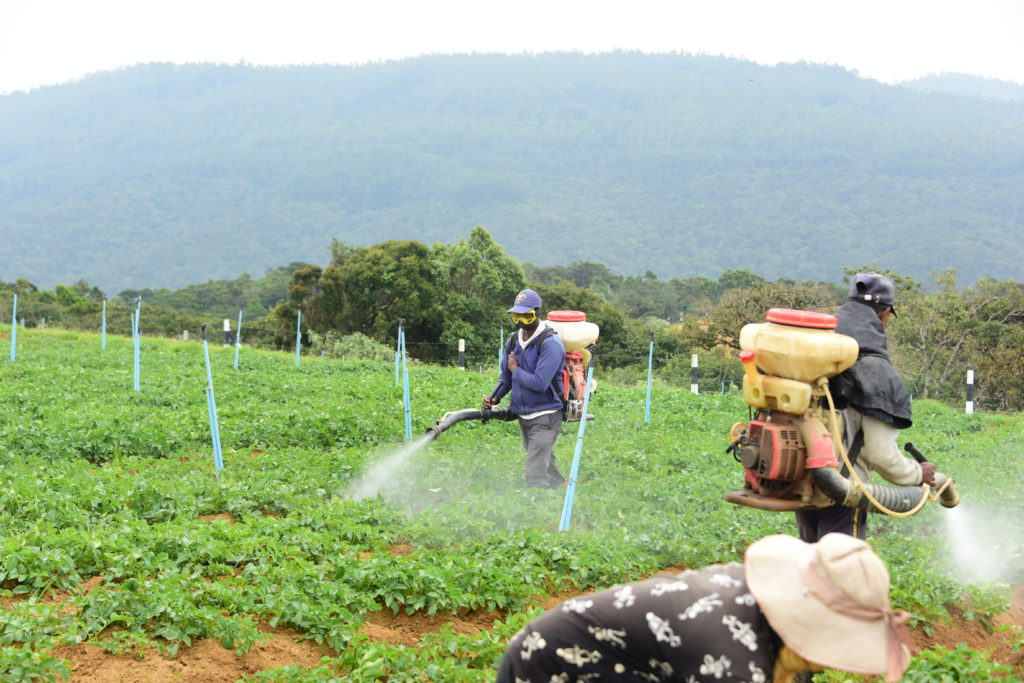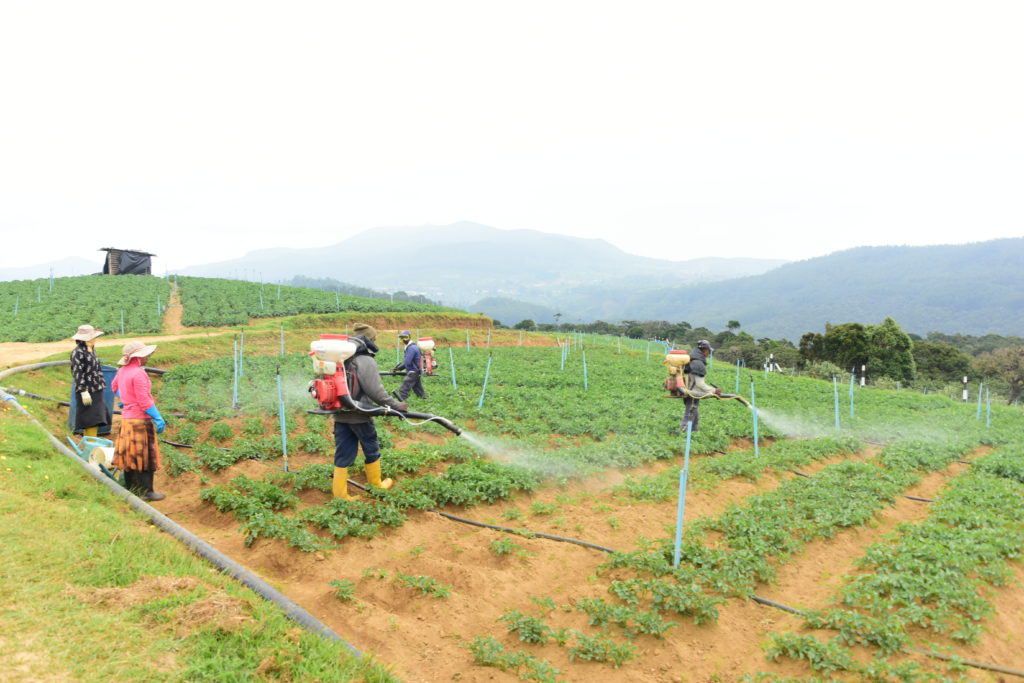Soil and Fertilizer
Central Soil and fertilizer Testing Laboratory
Horticultural Crops Research and Development Institute
Department of Agriculture
Central Soil and fertilizer Testing Laboratory of the Horticultural Crops Research and Development Institute of Department of Agriculture obtained International Certification of ISO/IEC 17025-2005 (Certificate of Accreditation) on October 30th , 2019 for soil and fertilizer testing. Soils are analyzed for pH. Electrical conductivity (salinity), available phosphorous, exchangeable potassium and organic carbon and advising the soil test based fertilizer recommendation for food crop sector. Further it is recommended some soil amendments and advices to solve the soil related problems like acidity and salinity. In addition it provides analytical services on request for soil, plant, water, inorganic and organic fertilizer for their composition and hazardous chemical like heavy metal and provide advice on various nutrient related problems and other environmental related problems to the public. Analytical Parameters of Central Soil and Fertilizer Testing Laboratory carried out|
Products(s) / Materials of test |
Specific Test (s) |
Accredited status |
| Soil | Basic Soil Parameters | Accredited |
| pH | ||
| Electrical conductivity | ||
| Available phosphorous | ||
| Exchangeable potassium | ||
| Exchangeable calcium | ||
| Exchangeable magnesium Organic matter | ||
| Available Micro Nutrients | ||
| Fe, Cu, Mn, Zn | ||
| Total Trace Elements | ||
| Fe, Cu, Mn, Zn, Pb, Cd, Cr, As | ||
| Inorganic Fertilizer | Total Trace Elements | |
| Fe Cu Mn Zn Pb Cd Cr As and Hg | Accredited | |
| Total N | Accredited | |
| Total P2O5, P level in Water | ||
| Total K2O | ||
| Moisture | ||
| Compost Analysis | pH | Not Accredited |
| Electrical conductivity | ||
| Total N | ||
| Total P2O5 | ||
| Total K2O | ||
| Organic C | ||
| Sand | ||
| Moisture | ||
| Plant Analysis | All macro and micro nutrients | Not Accredited |
| Water Analysis | pH | Not Accredited |
| Electrical Conductivity |
Soil Sample Analysis
Excessive use of fertilizer course unnecessary nutrient retention in the soil is major problem in future crops production and develop the nutrient imbalances in the soil. Therefore application of soil test based fertilizer recommendation is more sensible nutrient management plan for the application of correct source and correct amount of fertilizer application and reduce the indiscriminate use of fertilizer and environmental contamination. In addition advices are given to correct the pH in the soil. Therefore fertilizer use efficiency also increased.
In soil analysis pH, Electrical conductivity, available, phosphorous, exchangeable potassium and organic matters are determined.
Compost Analysis
It is important to monitor the quality of the agriculture input to quality control of them and making necessary recommendation and to ensure the existence of environmental quality in the agriculture sector.
pH, electrical conductivity, moisture, organic carbon, total nitrogen, total phosphorous, total potassium and sand are analyzing in compost analysis and reports will be submitted.
Fertilizer Analysis
It is important to analyze chemical fertilizer for their quality to ensure the existence of environmental quality in the agriculture sector, Consequently it has to assure food security of the Nation
Hence central soil and fertilizer testing laboratory carried out fertilizer analysis for moisture, total concentration of nitrogen, potassium and phosphorous, water soluble phosphorous and heavy metal.
Plant Sample Analysis
To solve the field problem in farmer field central soil and fertilizer testing laboratory analyze their plant sample and advise to them to correct fertilizer
Water Sample Analysis
Generally pH and Electrical conductivity are tested in given samples. Charges are not imposed yet.




Food Contaminant and Pesticide Analytical
Central Analytical Laboratory
Horticultural Crops Research and Development Institute
Department of Agriculture
| Products(s) / Materials of test | Scope | Specific Test (s) | Accredited status |
| Pesticide Residue Analysis | Vegetable and Fruits Crops by GC/MS | Diazinon-±0.031mg/kg Chlofyrifos-±0.034 mg/kg Prothiofos-±0.029 mg/kg Fipronil-±0.028 mg/kg Oxyflurofen-±0.052 mg/kg Tebuconazole-±0.050 mg/kg | Accredited |
| Water by GC/MS | Diazinon-±0.031mg/kg Chlofyrifos-±0.034 mg/kg Prothiofos-±0.029 mg/kg Fipronil-±0.028 mg/kg Oxyflurofen-±0.052 mg/kg Tebuconazole-±0.050 mg/kg | Pending | |
| Heavy metal Analysis | Rice | As- ±0.001 mg/kg, Se-±0.0024 mg/kg, Cd-±0.0002 mg/kg, Hg-±0.0003 mg/kg, Pb-±0.0009 mg/kg | Accredited |
| Vegetable Crops | As- ±0.001 mg/kg Se-±0.0024 mg/kg Cd-±0.0002 mg/kg Hg-±0.0003 mg/kg Pb-±0.0009 mg/kg | Pending | |
| Water | As- ±0.001 mg/kg Se-±0.0024 mg/kg Cd-±0.0002 mg/kg Hg-±0.0003 mg/kg Pb-±0.0009 mg/kg | Pending | |
| Be, V, Cr, Mn, Co, Ni, Cu, Tl | In Process | ||
| Pesticide Formulation Analysis | Physical test | ||
| Emulsion stability testing | ± 0.012 ml | Accredited | |
| Persistent forming testing | ± 0.019 | ||
| Wettability testing | ± 0.051 sec | ||
| pH | ± 0.016 | ||
| Density & Specific gravity | ± 0.001 | ||
| Chemical Test | |||
| Active ingredients | Diazinon-± 6.542 g/Kg Fipronil-±1.216 g/Kg | Accredited | |
| Pesticide identification | FTIR testing | ||
| Heavy Metal analysis | As- ±0.001 mg/kg Se-±0.0024 mg/kg Cd-±0.0002 mg/kg Hg-±0.0003 mg/kg Pb-±0.0009 mg/kg | Accredited | |
| Be, V, Cr, Mn, Co, Ni, Cu, Tl | In Process | ||
| Acephate , Omethoate , Pymetrozine, Dinotefuran, Nitenpyram, Methomyl, Thiamethoxam, Carbendazim, Monocrotophos, Imidacloprid, Clothianidin, Carbofuran-3-hydroxy, Acetamiprid, Acetamiprid 01, Cymoxanil, Cymoxanil 01, Thiacloprid, Aldicarb [M+NH4], Tricyclazole, Paraoxon-methyl, Phosphamidon, Carbofuran, Bendiocarb, Malaoxon, Carboxin, Carbaryl, Thiodicarb, Flutriafol, Metalaxyl, Metalaxyl-M, Chlorantraniliprole, Azoxystrobin, Fenamidone, Ethiprole, Flutolanil, Iprovalicarb, Fipronil, Flusilazole, Kresoxim-methyl, Phenthoate, Tebuconazole, Flubendiamide, Edifenfos, Diazinon, Fenthion, Propiconazole, Tridemorph, Hexaconazole, Fipronil sulfone, Pyraclostrobin, Pencycuron, Spinosada, Difenconazole, Trifloxystrobin, Indoxacarb, Spinosadd, Benfuracarb, Profenophos, Quizalofop-ethyl, Buprofezin, Emamectin-b1b-benzoate, Chlorpyrifos, Emamectin-b1a-benzoate, Lufenuron, Flufenoxuron, Fenpyroximate, Fenazaquin, Carbosulfan, Etofenoprox (M+NH4) | In Process |
Pesticide Residue Analysis
Analyzes and report on pesticide residues in food and water. The laboratory is equipped with advanced technical equipment such as LC/MS/MS, GC/MS, and GC-ECD. The internationally accepted QuEChERS methodology is used to perform the extraction and clean up with the method validation according to the SANTE/12682/2019 guideline. The Health Safety of Foods Analyzed by MRL’s (Maximum Residue Limits) is determined by the Government Gazette Extraordinary No. 2023/34 dated 14.06.2017.
- Vegetable and Fruits Crops
- Rice
- Cereals
- Water
Trace Elemental analysis including Heavy Metals
The laboratory is capable of analyze and report the 14 elements including arsenic (As), cadmium (Cd), lead (Pb) and mercury (Hg) presence in food and water. The analysis is done by inductively coupled plasma mass spectrometer (ICP–MS). Safety of the food is determined by the maximum permissible limits published by the FAO / WHO.
- Vegetable Crops
- Water
- Rice
Pesticide Analysis
The laboratory is equipped with equipment such as GC-ECD/NPD/FID, HPLC, FTIR, UV spectroscopy, and Karl Fisher Titrator. Qualitative and quantitative analysis of pesticide formulations and reporting of heavy metals in pesticides as impurities. Contributes to the quality assurance of the pesticide formulations imported into the country.
- Physical test (pH, Density, Persistent Foaming, Emulsion Stability, Wettability, Moisture)
- Active Ingredient Content
- Analysis of Heavy Metal (As impurities)
- Legal Sample Testing for Counterfeits




